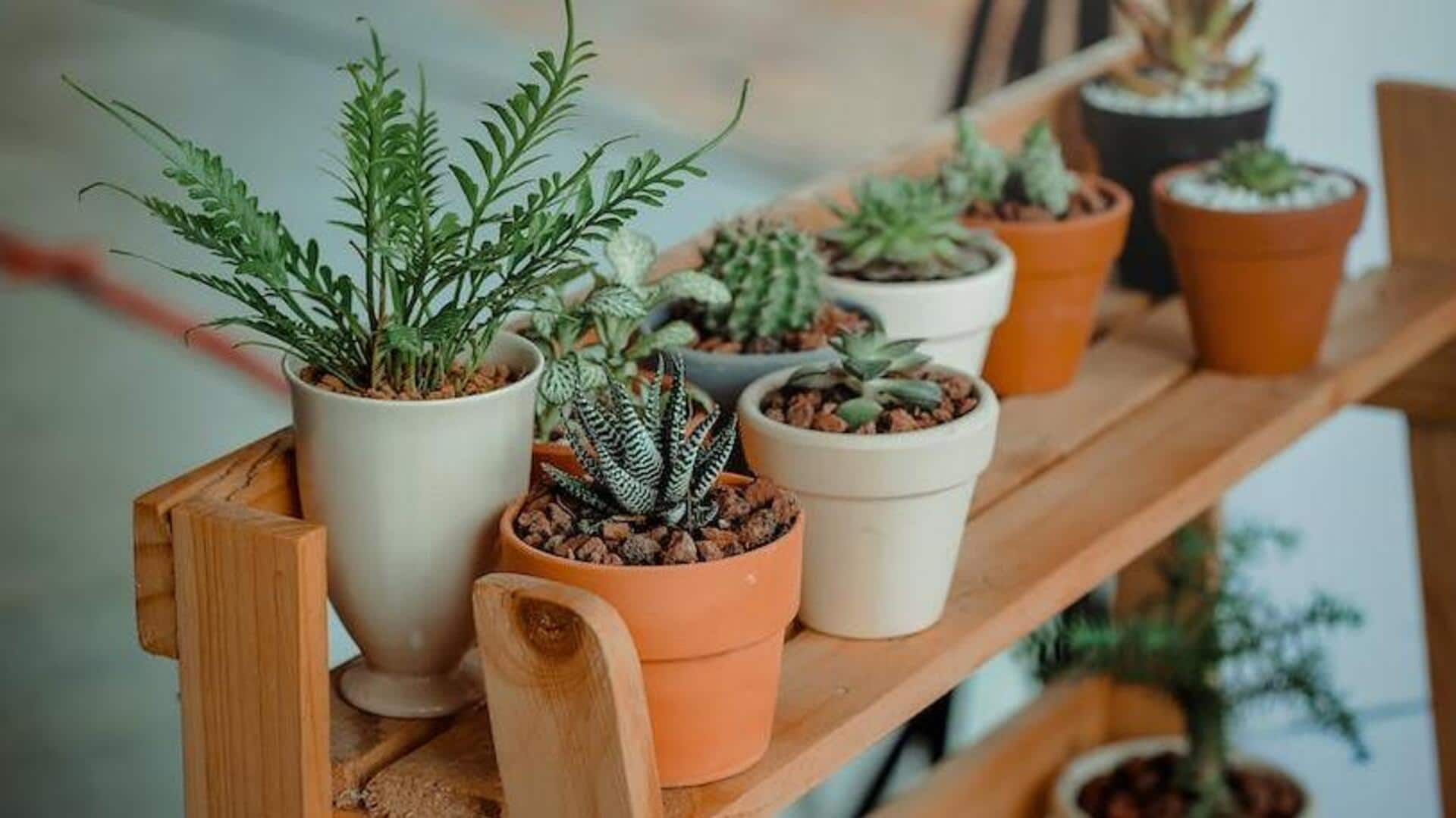
Winter care hacks for your indoor plants
What's the story
As the winter sets in, even your indoor plants need some care to thrive in the chilling weather. Experts believe that during the colder, darker months of the year, there are a few subtle changes in the growth of the plants that can impact their longevity. To keep your indoor plants healthy and flourishing, follow these easy hacks to modify your maintenance routine.
Tip 1
Reduce watering
Don't water your plants too much during winter or else they may wither out. Since summers are dry and cause rapid evaporation of water, each plant requires a varied amount of water. However, plants cannot receive the same amount of water during winter. Dig your fingers two inches below the topsoil and water only if that layer is dry.
Tip 2
Ensure sufficient lighting
Plants need at least six hours of direct sunlight daily, so place them where they can get some of it. Notice the direction in which they grow and turn your plants regularly so that the light reaches every side. This ensures there would be no uneven plant growth. Grow lights can be used as a supplement if your plants don't receive enough natural light.
Tip 3
Forgo fertilizer
Fertilizer gives extra nutrients, but since plants function at a slower rate during winter, they won't benefit much from the fertilizers. They may not even be producing new leaves and stems during the season. Thus, until springtime, give your plants a break. You can fertilize at half-strength or less if you are growing a specific plant and are giving it enough light.
Tip 4
Keep a check on pests
Many pests thrive during winters owing to dry conditions. Hence, every time you water a plant, turn its leaves over and look at the undersides. Examine the stems as well. If you find any pests, try using a cotton ball dipped in alcohol or your fingers to wipe them off. Neem oil and insecticidal soap can also be used to control houseplant pests.
Tip 5
Few dropped leaves are normal
Houseplants, to make up for the loss of light and food during the fall and winter, will naturally shed some of their leaves. Don't panic as it's a natural, seasonal process. Feel free to remove a few older leaves from an overgrown plant to help stop more leaf loss. It also helps retain the bushier and fuller appearance of your plant.